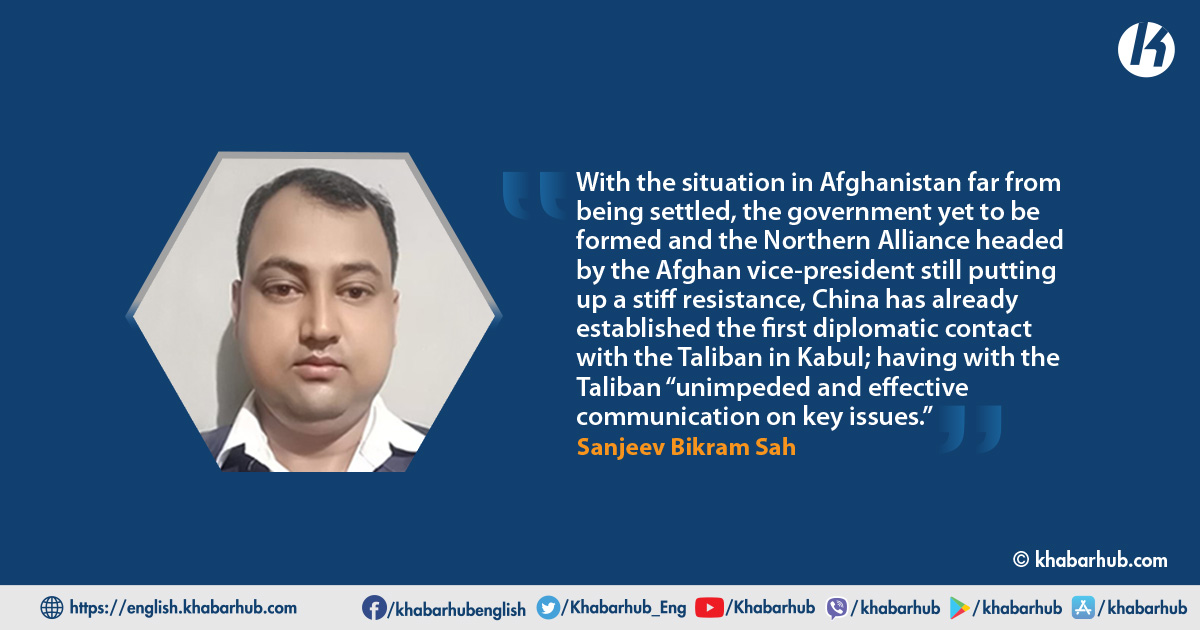A series of attacks on Chinese workers in Pakistan has sent the message to Beijing that neither Pakistan nor Afghanistan will accept the Belt and Road Initiative projects that have been designed to exploit these countries.
China boasts Pakistan is its all-weather friend. Pak President Imran Khan has unashamedly said in recent weeks that Pakistan accepts the Chinese version of the treatment of Uyghurs in the Xinxiang province — which the rest of the world has described as genocide —- as “Pakistan and China are close friends” and “the relationship is based on trust;” but the common people of Pakistan obviously think otherwise.
Notably, of all the recent attacks that have taken place on Chinese personnel in Pakistan in the Balochistan province and in Karachi, the last one on August 20, 2021, was carried out by a suicide bomber who was a child.
Of the two back-to-back attacks that have taken place in recent weeks, the first one, occurring at Dasu in Khyber Pakhtunkhwa in July, was more devastating. In a bomb blast in a bus carrying Chinese personnel, a total of 13 people, including nine Chinese nationals, were killed.
In the latter attack, the boy who attacked vehicles carrying Chinese personnel in a motorcade of the Gwadar East Bay Expressway project narrowly missed his target.
While a Chinese person suffered minor injuries, a number of other people were killed. Chinese nationals also came under attack in Karachi in July when they were fired upon by people from a moving motorcycle. One Chinese national was injured in the firing.
China has already invested in a copper mine and an oilfield in Afghanistan. which may have deposits of 60 million tonnes of copper, 2.2 billion tonnes of iron ore, 1.4 million tonnes of rare earth, besides deposits of aluminum, gold, silver, zinc, mercury, and lithium, according to a study by the Observer Research Foundation.
Quite significantly, all the attacks are taking place in areas where Chinese engineers and other personnel are engaged in pursuing the Belt and Road Initiative (BRI) projects of China. Thousands of Chinese engineers and others are now in Karachi where China is building the Gwadar port, a BRI project.
The China Pakistan Economic Corridor, too, terminates in Karachi. The Khyber Pakhtunkhwa attack took place on Chinese workers engaged in the Dasu hydro-electric project, again a part of CPEC, a $65 billion investment plan aimed to link western China with the Gwadar port.
To the discomfiture of China, the Tehreek-e-Taliban Pakistan has been blamed for the attack on Chinese personnel in Desu, killing nine of them. Chief of Inter-Service Intelligence of Pakistan Lieutenant General Faiz Hameed has lately been quoted as saying Taliban and Tehreek-e-Taliban as two sides of the same coin.
With this, the promise made by Taliban leader Mullah Abdul Ghani Baradar in his visit to China in July 2021 to Foreign Minister of China Wang Yi that the Taliban rulers would not allow Afghanistan to become a den of Islamic militant groups sounds hollow. Besides Tehreek-e-Taliban, other terrorist groups like al-Qaeda and Islamic State are also present in the Khyber Pakhtunkhwa area of Pakistan where the attack on the Chinese has taken place.
The ISIS-K, a faction of ISIS, has already delivered an early warning of their intentions by carrying out a bomb explosion outside the Kabul airport on August 26, killing about 75 people.
China has responded to the attack with shock and promised to co-operate with the international community in tackling terrorism.
The initial euphoria over the U. S. withdrawal from Afghanistan is now over, Beijing now seems to be waking up to the reality of the consequences of it.
On August 23, the Chinese Foreign Ministry said the USA “cannot just abandon Afghanistan” and called upon America to “help maintain stability, avoid chaos and rebuild Afghanistan.”
Beijing seems to be bending over backward to humor the Taliban as soon as it has entered Kabul.
With the situation in Afghanistan far from being settled, the government yet to be formed and the Northern Alliance headed by the Afghan vice-president still putting up a stiff resistance, China has already established the first diplomatic contact with the Taliban in Kabul; having with the Taliban “unimpeded and effective communication on key issues.”
Before the meeting of the G 7 countries on August 24 to discuss the Afghanistan situation, Beijing issued a statement that sanctions against the Taliban would not be productive.
Beijing also has decided to step up financial assistance to Taliban-controlled Afghanistan when the rest of the world is suspending funding of Kabul till the fundamentalist group modifies its obscurantist religious policies.
Beijing has been lured by the natural resources of Afghanistan; keen to exploit them, it has decided to join hands with the Taliban.
China seems also to have taken in by the Taliban’s promise that it would not offer shelter to East Turkestan Islamic Movement (ETIM) militants who are fighting for the rights of Uyghurs in the Xinxiang region of China.
China has already invested in a copper mine and an oilfield in Afghanistan. which may have deposits of 60 million tonnes of copper, 2.2 billion tonnes of iron ore, 1.4 million tonnes of rare earth, besides deposits of aluminum, gold, silver, zinc, mercury, and lithium, according to a study by the Observer Research Foundation.
Pakistan wants to borrow the amount from China at a concessional three percent rate of interest but China would not lend as Pakistan would not give a sovereign guarantee.
Because of its strategic location, China wants Afghanistan to be an important part of the China-Pakistan Economic Corridor.
China has an 80-km long border with Afghanistan through which China may open another route to join the CPEC and access Gwadar Port which is a key strategic asset for Beijing to project its power in the Indian Ocean.
Attacks on Chinese personnel in places in Pakistan through which the CPEC is passing should be a warning to Beijing that common people in these areas are resenting Chinese presence, and the exploitative nature of the BRI projects.
The attack on Zaver Pearl-Continental Hotel in Gwadar in May 2019 is still fresh in memory. The Balochistan Liberation Army which carried out the attack said the hotel, the centerpiece of a multi-billion-dollar Chinese project, was targeted as Chinese investments brought little benefit to the common people.
Fishermen in Gwadar complain that they are no longer allowed to fish in the area in the sea where the port has come up.
In Sahiwal in the Punjab province of Pakistan where a thermal power project has been set up as a part of CPEC, many people were forced to part with agricultural land. Charges of terrorism were slapped on people who protested.
People of Sahiwal have complained of health issues attributed to water contamination caused by the coal-fired power plant. Asthma and other respiratory diseases are also on the rise.
The CPEC projects which are designed to enmesh the receiving countries in a debt trap have extracted a high cost in Pakistan and now differences have surfaced between China and Pakistan over a railway project costing $6 billion.
Pakistan wants to borrow the amount from China at a concessional three percent rate of interest but China would not lend as Pakistan would not give a sovereign guarantee.
The Taliban, whom Beijing is trying to woo, is evidently a loosely organized outfit with diverse elements having their presence. Some of these groups have been responsible for recent attacks on Chinese personnel in Pakistan where also they are active.
Differences have also surfaced over the setting up of special economic zones from which Chinese companies want to start producing goods in Pakistan for export. Director-General of Manohar Parrikar Institute for Defence Studies and Analyses Sujan Chinoy writes that the Chinese presence in Balochistan has infused the Baloch nationalist movement with new energy.
Chinese workers, seen as collaborators in the exploitation of the natural resources of the region, have become a major target for insurgents.
Even in Punjab, the heartland of the Pak army, clashes have taken place between Chinese workers and local police personnel.
With such a dubious track record in Pakistan, China should be wary of stepping into volatile Afghanistan with its BRI projects.
The Taliban, whom Beijing is trying to woo, is evidently a loosely organized outfit with diverse elements having their presence. Some of these groups have been responsible for recent attacks on Chinese personnel in Pakistan where also they are active.
Now if China extends to Afghanistan its quest for dominating the world, it may have to pay a heavy price. With all kinds of terrorist groups being present in Afghanistan, there seems to be little hope for China that ETIM militants would not get shelter there. After all, ETIM, at one stage, has fought with both the Taliban and ISIS.









Comment